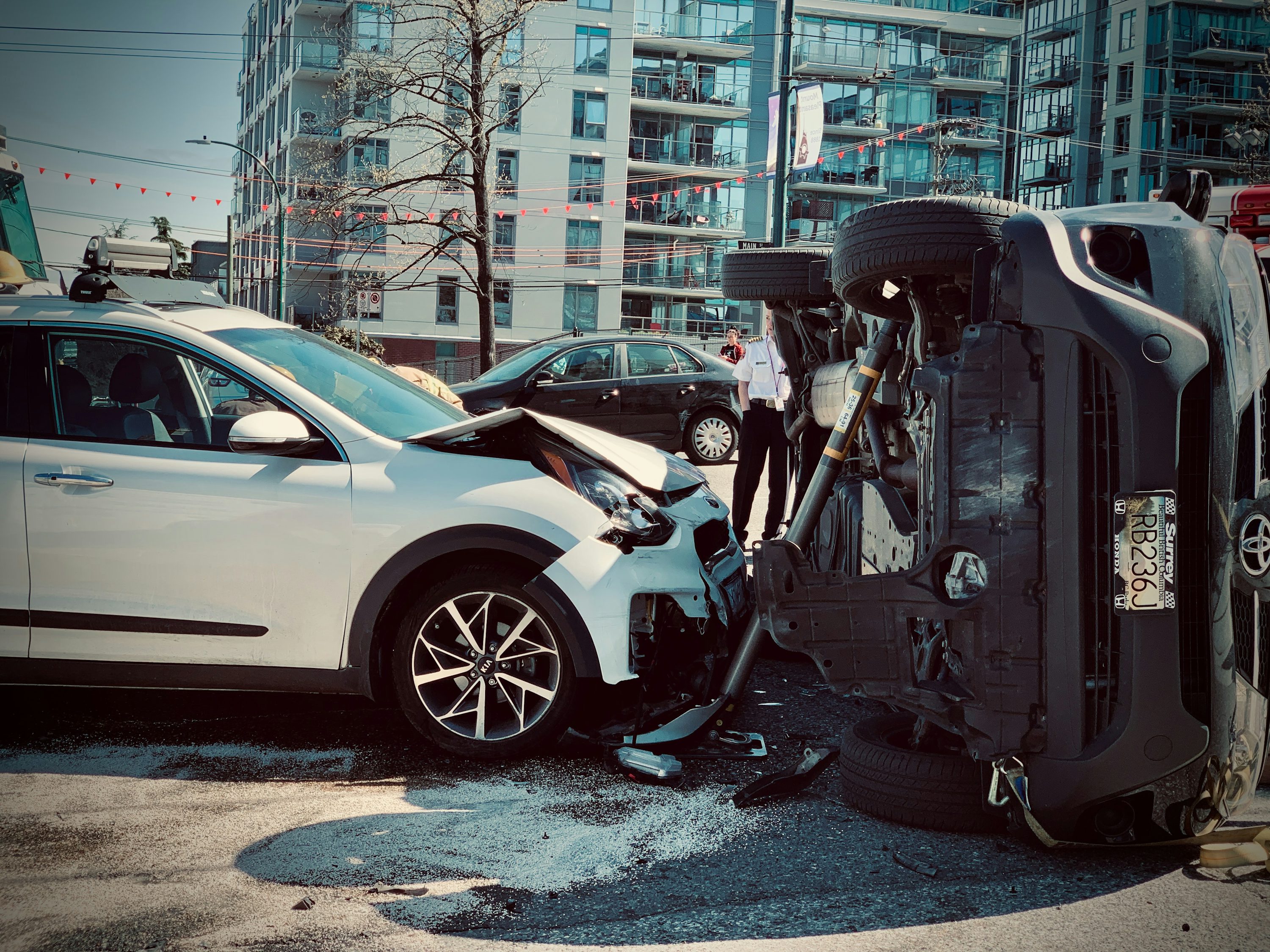You’re going to be late. Without really thinking about that squeaky noise you’ve been hearing for a few weeks, you get in your car, turn on the ignition, and drive away. Perhaps the brakes are to blame. It might not be anything. It won’t be checked today, but it will be later.
Now picture someone abruptly cutting you off on your way to work. Your car doesn’t react as it should when you apply the brakes. You go down. All of a sudden, that minor maintenance problem you disregarded has grown larger. Even worse, you’re now dealing with unexpected legal repercussions.
This is how minor auto issues can turn into legal nightmares. Even if someone else causes an accident, most drivers are unaware that poor maintenance can hold you partially or entirely accountable.
Let’s examine the causes of this and your self-defense options.
The “Small” Maintenance Mistakes Most People Ignore
Let’s face it, no one likes to spend money on auto repairs, particularly when the vehicle is still operational. However, the most frequent maintenance problems that drivers ignore can also be the ones that hurt them the most in court.
Here are some instances:
- Tires that are worn out: Particularly in rain or snow, bald or underinflated tires decrease traction. They can quickly result in a loss of control.
- Bad brake lights: The driver behind you won’t have any warning if your brake lights aren’t working. You may be held accountable if they rear-end you.
- Brakes that are squeaky or worn: You may grow accustomed to the sound, but damaged rotors or worn brake pads can prolong stopping time by valuable seconds.
- Windshield cracks: Especially in cold climates, even a tiny crack can impede vision or worsen over time.
- Burned-out headlights: It is dangerous to drive at night or in inclement weather with just one headlight.
By themselves, none of these problems appear to be significant. However, they have the potential to cause or contribute to a crash at the wrong time. And when that occurs, you’re interacting with attorneys and insurance companies in addition to a mechanic.
When Small Issues Turn into Big Legal Problems
You might be viewed as “negligent” if you are in an accident and your vehicle isn’t in good operating order. In a court of law or an insurance investigation, that word is very important.
Imagine that your brake lights weren’t functioning. You are rear-ended by someone. The rear driver is usually held accountable. However, you might be held partially or even entirely accountable if your broken lights prevented them from seeing you slowing down.
Depending on your state’s laws, this idea is known as comparative negligence or contributory negligence. In certain locations, you may lose 10% of your compensation even if you are only 10% at fault. In others, you might not get anything at all if you’re more than 50% at fault.
Now think about this: what if, despite the tire being dangerously worn, you never replaced it and it blew out on the freeway? You could face serious legal repercussions if that results in a collision. Additionally, you might even be charged with a crime if someone is hurt or killed.
In such situations, having the right car crash attorney can be crucial to help you navigate liability and defend your case effectively.
What the Law Says About Vehicle Maintenance
Legally, drivers must maintain their cars in safe operating order. This is more than just a kind recommendation. When you get behind the wheel, you assume this fundamental responsibility.
To help enforce this, the majority of states have laws requiring vehicle inspections. However, passing an annual inspection alone is insufficient. If an accident was caused in part by your car’s lack of maintenance, the courts may still hold you accountable.
You might receive a citation for:
- Driving a car that is unsafe
- Operating a vehicle while wearing faulty equipment
- Careless driving
These infractions may result in lawsuits or even criminal charges in extreme circumstances, particularly when injuries are involved. And that’s before we even discuss the reaction of insurance companies.
How Insurance Companies Use This Against You
The sole responsibility of insurance adjusters is to reduce the amount that the company pays out. They will use any proof that your car wasn’t properly maintained to refute your claim or place the blame on you.
This is how it goes:
- When the adjuster examines your vehicle following an accident, they discover that the tires are bald.
- They conclude that you were less able to brake or steer safely because of your worn tires.
- They determine that you are partially or, in certain situations, completely at fault based on that.
- The amount of your claim is either lowered or rejected completely.
- Either your policy is canceled or your premiums increase.
If your car wasn’t in safe condition, it doesn’t matter how cautiously you drove. Both the law and your insurer expect you to perform basic maintenance.
Simple Ways to Protect Yourself
The good news is that all of this is preventable. You don’t need to be a mechanic to keep your car in safe shape. You just need to stay on top of a few basics and be proactive about fixing small issues before they turn into big ones.
Here’s a simple checklist that can keep you safe and legally protected:
- Tires: Check the tread and air pressure regularly. Replace them when worn.
- Brakes: If they squeak, grind, or feel soft, get them checked immediately.
- Lights: Test your headlights, brake lights, and turn signals often. Replace bulbs as soon as they go out.
- Fluids: Keep an eye on oil, brake fluid, coolant, and windshield washer levels.
- Windshield wipers: Replace them at least once a year. Poor visibility can be just as dangerous as bad brakes.
- Dashboard lights: Never ignore warning lights. They’re there for a reason.
It’s also smart to keep a record of all your maintenance. Save receipts, write down dates, and note what work was done. If you ever end up in court, this documentation could be the thing that protects you.
Fortunately, all of this can be avoided. Maintaining the safety of your vehicle doesn’t require you to be a mechanic. All you have to do is keep up with a few fundamentals and take initiative to address minor problems before they become major ones.
Here is a quick checklist to help you stay safe and compliant with the law:
- Tires: Regularly check the air pressure and tread. When worn, replace them.
- Brakes: Get them checked right away if they grind, squeak, or feel soft.
- Lights: Check your turn signals, brake lights, and headlights frequently. As soon as a bulb goes out, replace it.
- Fluids: Monitor the levels of coolant, brake fluid, oil, and windshield washer.
- Replace your windshield wipers at least once a year. Bad brakes are not always as dangerous as poor visibility.
- Never disregard warning lights on the dashboard. They have a purpose.
Maintaining a log of all your maintenance is also a good idea. Keep track of receipts, record dates, and make a note of the work completed. This paperwork might be your defense if you ever find yourself in court.
And if you’re ever unsure about your legal rights after an accident, don’t hesitate to seek legal help for car accident situations where maintenance or mechanical failure may be an issue.
Final Thoughts
Nobody prepares for mishaps. However, you don’t want to be the one who gets into legal trouble for ignoring a brake problem or putting off replacing a bald tire if one does occur.
The cost of a lawsuit, a rejected insurance claim, or worse, someone getting hurt, is far greater than the inconvenience of minor maintenance chores. Maintaining your car’s condition involves more than just keeping it safe. It’s about keeping everyone on the road, including yourself and your passengers, safe.
Therefore, now is the time to fix that blinking dashboard light or do a repair that you’ve been putting off. You could avoid a lot of legal issues tomorrow with a little work today.









